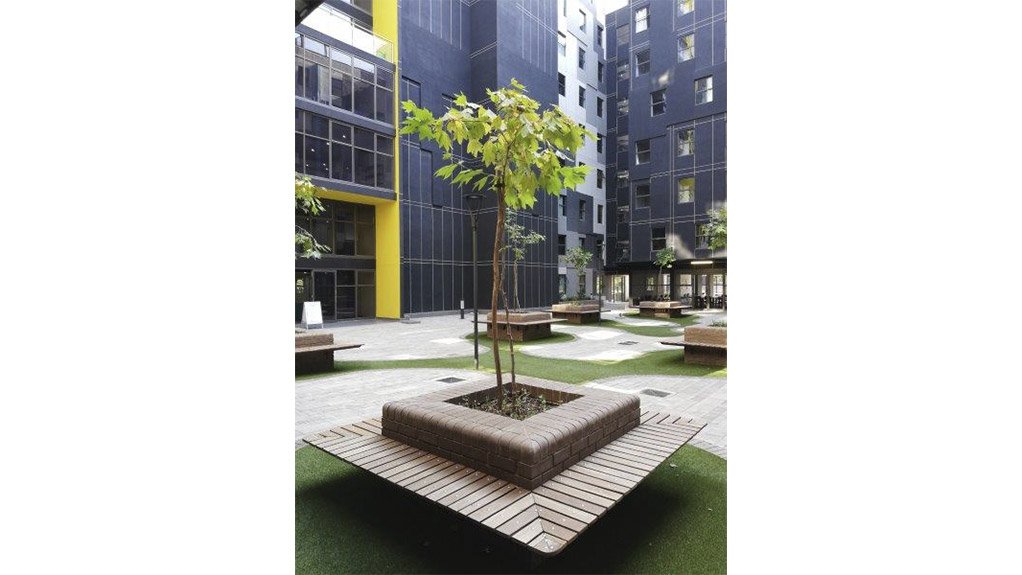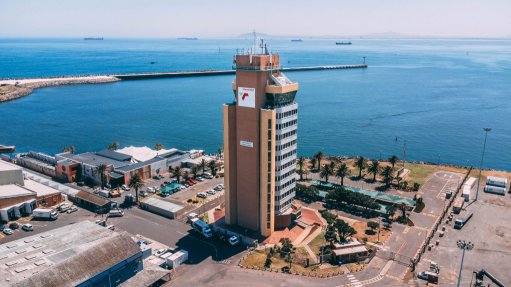Students return to campus, but is their accommodation still safe?
This article has been supplied.
The issue of fire-safety requirements for student accommodation is again being highlighted now that university students are slowly returning to campuses as Covid-19 restrictions are eased. “Fire-safety requirements for student accommodation are by nature more onerous than other building types,” comments ASP Fire CEO Michael van Niekerk.
This is because any building in which rooms are rented out as accommodation is deemed to be on par with a hotel. As it is a densely populated residential environment, such a building must comply with all regulations and standards. In terms of fire safety, fires can be dealt with through three main actions: Controlling the growth of a fire to prevent it from spreading, suppressing a fire to cool it rapidly, and finally extinguishing a fire so that no heated substances remain.
Evacuation should be safe and easy and allow unrestricted access for emergency services. Fire-detection systems must be installed to be able to detect any fire as soon as possible, thereby warning occupants to allow them to exit in time.
“Buildings that accommodate large numbers of people are often not designed with specific occupant characteristics in mind,” stresses van Niekerk. ASP Fire not only offers its fire engineering expertise for new buildings, but can also bring existing non-compliant buildings, especially older buildings, up to standard.
Moreover, historic buildings that accommodate residents, or that are converted to accommodate residents, pose a particular challenge in that they often lack modern fire-safety elements vital for the safe evacuation of residents, or to prevent fire or smoke from spreading rapidly throughout the building.
Looking at the latest trends in the property-development market, van Niekerk points to the current largescale repurposing of commercial and even industrial buildings into long-term residential units. Another trend is an increased demand for affordable student accommodation, such as the refurbishment of the Hatfield Square mixed-use student accommodation in Pretoria, designed by the Paragon Group for owners and developers Respublica and Redefine.
Article Enquiry
Email Article
Save Article
Feedback
To advertise email advertising@creamermedia.co.za or click here
Press Office
Announcements
What's On
Subscribe to improve your user experience...
Option 1 (equivalent of R125 a month):
Receive a weekly copy of Creamer Media's Engineering News & Mining Weekly magazine
(print copy for those in South Africa and e-magazine for those outside of South Africa)
Receive daily email newsletters
Access to full search results
Access archive of magazine back copies
Access to Projects in Progress
Access to ONE Research Report of your choice in PDF format
Option 2 (equivalent of R375 a month):
All benefits from Option 1
PLUS
Access to Creamer Media's Research Channel Africa for ALL Research Reports, in PDF format, on various industrial and mining sectors
including Electricity; Water; Energy Transition; Hydrogen; Roads, Rail and Ports; Coal; Gold; Platinum; Battery Metals; etc.
Already a subscriber?
Forgotten your password?
Receive weekly copy of Creamer Media's Engineering News & Mining Weekly magazine (print copy for those in South Africa and e-magazine for those outside of South Africa)
➕
Recieve daily email newsletters
➕
Access to full search results
➕
Access archive of magazine back copies
➕
Access to Projects in Progress
➕
Access to ONE Research Report of your choice in PDF format
RESEARCH CHANNEL AFRICA
R4500 (equivalent of R375 a month)
SUBSCRIBEAll benefits from Option 1
➕
Access to Creamer Media's Research Channel Africa for ALL Research Reports on various industrial and mining sectors, in PDF format, including on:
Electricity
➕
Water
➕
Energy Transition
➕
Hydrogen
➕
Roads, Rail and Ports
➕
Coal
➕
Gold
➕
Platinum
➕
Battery Metals
➕
etc.
Receive all benefits from Option 1 or Option 2 delivered to numerous people at your company
➕
Multiple User names and Passwords for simultaneous log-ins
➕
Intranet integration access to all in your organisation




















